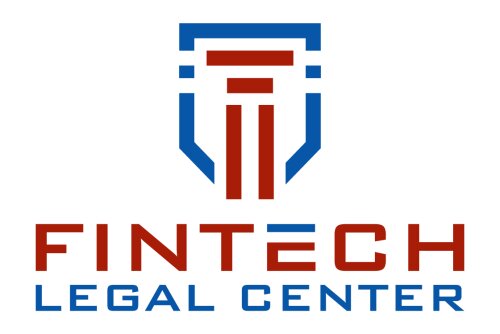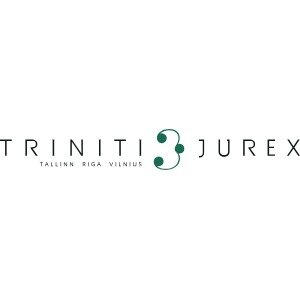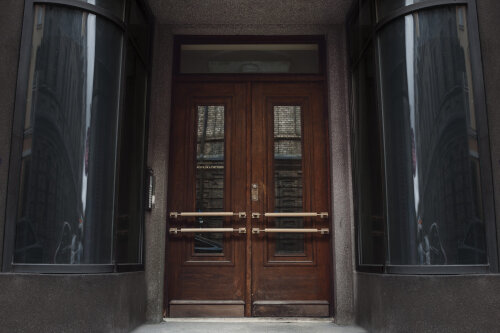Best Art & Cultural Property Law Lawyers in Estonia
Share your needs with us, get contacted by law firms.
Free. Takes 2 min.
Or refine your search by selecting a city:
List of the best lawyers in Estonia
About Art & Cultural Property Law in Estonia
Art & Cultural Property Law in Estonia encompasses the legal frameworks governing the preservation, protection, and utilization of artistic and cultural assets. Estonia is rich in cultural heritage, with laws designed to protect everything from ancient artifacts to contemporary art pieces. The legal landscape is influenced by both national legislation and international conventions to which Estonia is a signatory. These laws aim to ensure that Estonia's cultural property is preserved for future generations while allowing its art market to thrive responsibly and ethically.
Why You May Need a Lawyer
There are several scenarios where individuals or organizations may require legal assistance in the field of Art & Cultural Property Law:
- Acquisition and Ownership Disputes: Legal help is often needed in disputes concerning the ownership of artworks or cultural property.
- Export and Import Regulations: Navigating the legal requirements for moving cultural goods across borders can be complex, necessitating expertise.
- Intellectual Property Rights: Artists and creators may need legal defense of their rights concerning reproduction, distribution, and display of their works.
- Heritage Preservation: Issues may arise regarding the conservation of heritage sites and properties, requiring knowledgeable guidance.
- Art Theft and Recovery: Legal professionals can assist with recovery efforts and navigating the realms of stolen or illicitly traded cultural property.
Local Laws Overview
Estonia's Art & Cultural Property Laws comprise several key components:
- Cultural Heritage Protection Act: This law outlines the rules for conserving and protecting historical sites and artifacts in Estonia.
- Copyright Act: This legislation governs the intellectual property rights of creators, including artists and performers.
- Import and Export Regulations: These rules dictate the legal requirements for exporting and importing cultural property, ensuring compliance with both national and international standards.
- Museum Act: This act regulates the operations and responsibilities of museums in preserving and displaying cultural property.
- International Agreements: Estonia adheres to several international conventions, such as the UNESCO 1970 Convention on the Means of Prohibiting and Preventing the Illicit Import, Export, and Transfer of Ownership of Cultural Property.
Frequently Asked Questions
What is cultural property?
Cultural property includes objects, sites, and artifacts that have cultural, historical, or artistic significance, each subject to specific legal protections.
How do I prove ownership of a piece of art?
Ownership can be proven through documentation such as invoices, certificates of authenticity, provenance records, and, in some cases, expert authentication.
Are there restrictions on exporting art from Estonia?
Yes, exporting certain cultural items requires a permit from the Estonian National Heritage Board, especially if the item is deemed a national treasure.
Can I sell an artwork I inherited?
Selling an inherited artwork is permissible, but it's crucial to verify its legal status and resolve any outstanding provenance issues.
What should I do if I suspect an art piece I own is stolen?
Contacting a legal professional with expertise in art law is advisable to investigate the matter and determine a course of action.
How does Estonia protect intellectual property for artists?
Estonian artists are protected under the Copyright Act, which grants them rights over the creation, reproduction, and distribution of their works.
What are the penalties for illegal import or export of cultural property?
Penalties can include fines, confiscation of the property, and legal prosecution under Estonian law and relevant international conventions.
How can I verify the authenticity of a historical artifact?
Authenticity can often be verified through physical assessments by experts, as well as reviewing provenance and historical documentation.
Is there a registry for stolen art in Estonia?
Estonia coordinates with international databases like INTERPOL's Stolen Works of Art database for tracking stolen cultural property.
How do museums in Estonia acquire new artifacts?
Museums follow legal acquisition processes, ensuring that all new items are lawfully obtained and documented according to the Museum Act.
Additional Resources
For those seeking further assistance or information, the following are useful resources in the field of Art & Cultural Property Law in Estonia:
- Estonian National Heritage Board: Oversees protection and preservation of cultural heritage within Estonia.
- Estonian Ministry of Culture: Offers guidance on cultural policies, including art and cultural property laws.
- International Conventions: Access treaties such as the UNESCO Convention to understand international obligations.
- Local Law Firms: Many law firms in Estonia specialize in art law and can provide tailored legal advice.
Next Steps
If you need legal assistance in Art & Cultural Property Law, consider taking the following steps:
- Consult a Specialist: Engage with a lawyer who specializes in art and cultural property law to discuss your specific needs.
- Document Your Concerns: Prepare any documentation related to your case to facilitate efficient legal consultation.
- Understand Your Rights: Take time to learn about your rights and obligations under Estonian law to clearly communicate your goals.
- Explore Mediation: In some cases, legal disputes can be resolved through mediation, which might be quicker and more cost-effective.
- Stay Informed: Keep abreast of updates in Estonian laws and international conventions that may affect your situation.
Lawzana helps you find the best lawyers and law firms in Estonia through a curated and pre-screened list of qualified legal professionals. Our platform offers rankings and detailed profiles of attorneys and law firms, allowing you to compare based on practice areas, including Art & Cultural Property Law, experience, and client feedback.
Each profile includes a description of the firm's areas of practice, client reviews, team members and partners, year of establishment, spoken languages, office locations, contact information, social media presence, and any published articles or resources. Most firms on our platform speak English and are experienced in both local and international legal matters.
Get a quote from top-rated law firms in Estonia — quickly, securely, and without unnecessary hassle.
Disclaimer:
The information provided on this page is for general informational purposes only and does not constitute legal advice. While we strive to ensure the accuracy and relevance of the content, legal information may change over time, and interpretations of the law can vary. You should always consult with a qualified legal professional for advice specific to your situation.
We disclaim all liability for actions taken or not taken based on the content of this page. If you believe any information is incorrect or outdated, please contact us, and we will review and update it where appropriate.
Browse art & cultural property law law firms by city in Estonia
Refine your search by selecting a city.
















